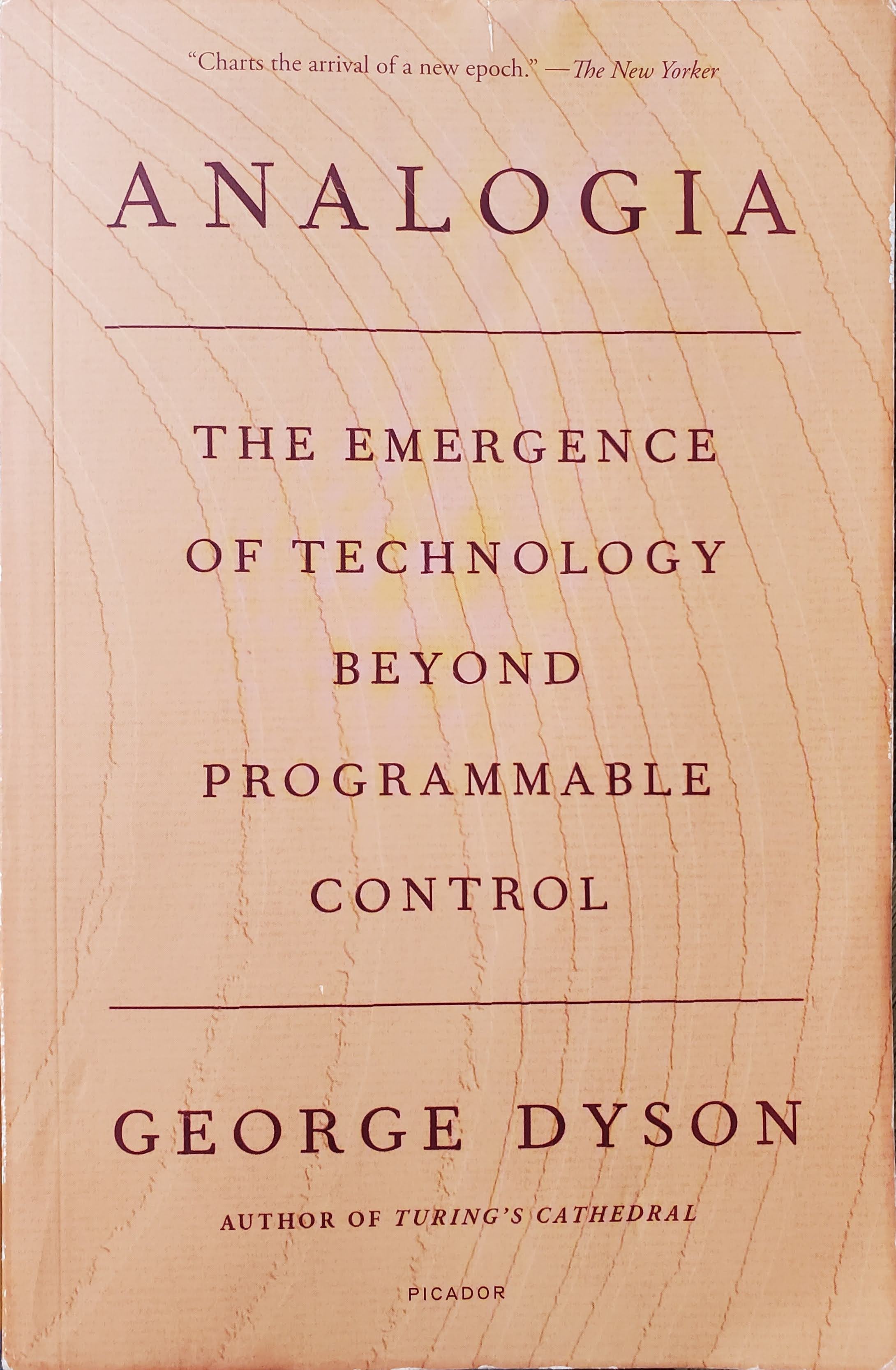
Analogia
The Emergence of Technology Beyond Programmable Control
Through a set of deep-diving anecdotes of forgotten American history, George Dyson weaves together a sprawling history of analog technologies before the digital revolution. He gathers them together into a set of potent analogies he then wields in the final sections of the book, which are dedicated to questions and predictions about the future of humanity. Now that we are all engulfed in a sea of technological systems, he argues that we are returning to an era of analog technologies, though now they are hyperobjects composed of many digital technologies and systems. The rise of these super-systems were the inflection point, in his view, of when we became subservient to technology.
This book can be a challenging read, and it took me for a long ride while reading it. While I want to chew on the final ideas Dyson gets to at the end of this book, and I want to try to distill the ideas into a brief format to be able to discuss with others, I must admit I find them less interesting than how he arrives at them.
Maybe it's a generational thing, but I look back on the relationship between humanity and technology and I don't see much difference on either side of this inflection point he marks. Humanity's creation of technologies has always been growing toward creating totalizing systems that clarify or control the "messiness" of natural systems. And every time we've developed complex systems or objects, we've come up against complexity itself; the entropy of complex systems. All I see now is that in addition to those complex natural systems that will forever enfold humanity, we have layered in technological systems and social systems (themselves a form of technology) that are complex enough to now behave like natural systems, at least from our limited human perspective.
I do think it is revelatory to see how that complexity is built up from seemingly simple, mundane works of human design, and I think that actually gives me hope that we can use ideas like this one to patch the mental blindspot we have as humans on how small, manageable technological choices can have complex, self-organizing, and cascading impacts on the world. This book charts the how of that process in a compelling way.
But no, what I want to write about more is how Dyson writes his early chapters. In them, he begins with a deep dive on a forgotten bit of technological history, centering both the technology itself and every human relationship involved in the episode. From there, he steadily works his way forward in time, past the climax of the event and down through history, into the present or recent past. From there he intersects the story with his life in some mundane way, sometimes starting abruptly from a casual memoir-like slice of life, then revealing the woven-together history and science into the tiny personal story. It is a way of writing that hit me very hard even the third and fourth time he performed it. I love that it builds up this glacial historical momentum, this morass of deep knowledge of a piece of land or a group of people, and then shows its faint traces on the ground in the present day.
I imagine this is what it would feel like to happen upon a ruin, and then have a wise stranger describe to you how the crumbled nook before your feet was designed by the original proprietor's daughter to play hide and seek in, then was later used as a hideout during a war, and then they told you how the process of erosion and natural decay actually took place, the way water can freeze between stone blocks and pop them from one another over the course of decades. After hearing all this, I imagine the scene would start to glow before you, as you realized that it really was all connected by time, physics, and society.
Dyson does this in a few passages that are so enjoyable to me that I don't want to "spoil" them by recounting. I'll simply say that if you find the deep history and scientific explanations dry, allow them to fall on you in layers, and then feel them as echoes as you are carried forth to the present with them.
Citation
George Dyson. Analogia: The Emergence of Technology Beyond Programmable Control. 2020. Printed Book.